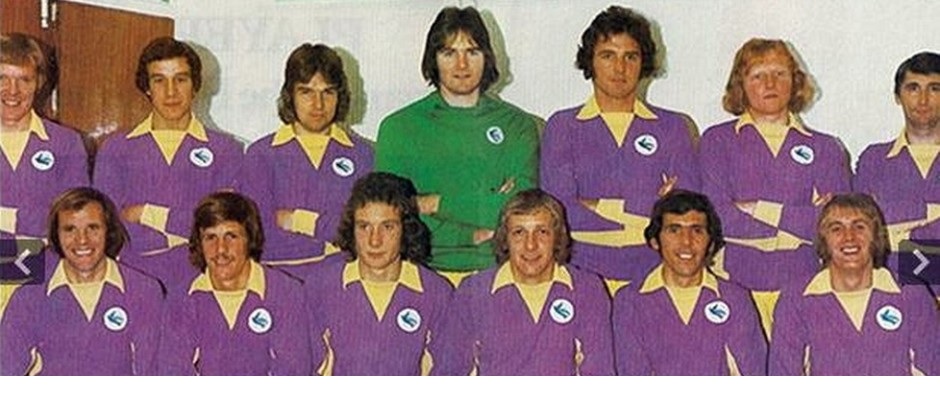
Tomorrow’s home game with Stoke is a definite glass half full/empty one depending on your viewpoint, but, speaking for myself, it puts me in a quandary. As someone who has broadly tended to think we will stay up this season, I’m a glass half full merchant and if I were to go into fully optimistic mode, I could say that a win would all but guarantee us Championship football in 23/24 (especially if we can maintain our better goal difference than most of the sides around us).
The problem I have though is that, especially after our last two matches at Cardiff City Stadium, I’m definitely in the glass half empty group when it comes to playing on our own ground – three seasons of pathetic home results and miserable home performances have left me very much fearing the worst when we play at home. The occasions where I have began to think we were doomed have been in the aftermath of losses like we saw against Swansea and Sunderland. We gained nothing in terms of momentum carried into our next match from our win at Blackpool, so I find it hard to think that we will from Wednesday’s so welcome win at Watford either.
A fortnight ago, I would definitely have been tipping an away win, but, since then, Stoke’s form has dipped – they’ve not won in four and were beaten at home by bottom club Wigan in midweek, so maybe there are some grounds for hope?
Glass half full or empty, there’s a quiz to be done! Here’s seven questions on Stoke with the answers to be posted on here on Sunday.
60s. He played some of his early football in Oswestry, but his first professional football came at a capital club with a ground which brings to mind this time of year. His next move was to a now defunct club that had been top flight runners up four times and FA Cup winners once. He did well for this club (his five international caps were won during this period) and his next move was definitely an upward one to a team that would soon be winning cups and having the eyes of the world on it, but, having never quite fully established himself there, he moved to Stoke before the period of success began. He spent three years in the Potteries and played more league games for them than anyone else, but, again he never established himself to the extent that he was an automatic first choice and Stoke were happy to let him leave to play for his second London side, this time in the Second Division. Again, his stay was a pretty short one as the emergence of a highly rated regal youngster saw him losing his place after two seasons and his final transfer saw him make a short move to play besides the seaside for a season before he retired just as the sixties were ending. Who am I describing?
70s. Great things were expected of this man who became his local team’s youngest ever player back in the days when he would have been known as an inside forward. Having played a full part in attaining a promotion to the First Division, he so impressed the opposition in a 6-0 defeat for his team that they paid a club record fee for him a couple of months later. This move south and across country was a success in that he would spend a decade with them and become an inductee into their Hall of Fame. However, most of that time was spent in the Second Division and his Wikipedia entry speaks of him never quite attaining his full potential while noting that it was thought his temper held him back somewhat. His move to Stoke came late in his career and was not a success as he never made it to ten league games with a team that was in decline – indeed he spent some of his time there on loan to a Fourth Division side that were used to fighting re-election battles of their own (ultimately they’d lose one of them). He then had a season with another former Football League club from Lancashire before a brief spell as player/manager at a club which has a nominal connection with City – he ended his playing career representing one of the sides in the War of the Roses, but can you name him?
80s. Concrete over wild grassland by the sound of it.
90s. What is the link between the film Jaws, the Royal Mail and the time 11.49 seconds?
00s. Start loving caramel and wine mixture!(4,8)
10s. Can you recognise this former Stoke players by this chronological list of the shirt colours he played his club and international football in?
Red and white, orange, red and blue, blue, red and white, red and white (this was Stoke) and red and white.
20s. Indomitable Caine and/or Law role?
Answers
60s. Scottish international goalkeeper Lawrie Leslie played for his regimental side in Oswestry during his National Service days and then signed for Hibs in 1956. Three years later he moved to Airdrieonians and was capped five times during this period. West Ham was his next destination, but he was off to Stoke in 1963 before moving to Millwall three years later. The emergence of Bryan King saw Leslie demoted to the reserves at the Den and this was the cue for his final move to Southend.
70s. Alan Suddick was Newcastle’s youngest ever first team player when he represented them at the age of seventeen years and one hundred and fifty eight days in 1961. In October 1966, Suddick was in a Newcastle side which was beaten 6-0 at Bloomfield Road, Blackpool and the victors were so impressed by him that they paid a club record £63,000 for his services before the year was out. Suddick played over three hundred league games for Blackpool and was always recognised as one of their better players, but he moved on to Stoke at the age of thirty two and found himself part of a team that was going to be relegated at the end of the season. Suddick was loaned to Southport and then played for Bury for a season before dropping into non League football with the Bluebirds of Barrow – his final club was Lancaster City.
80s.Phil Heath.
90s. Former City and Stoke forward John Williams acquired the nickname “the flying Postman” after he won the £10,000 first prize at the Rumbelows Sprint Challenge which was a 100 metre sprint for footballers held prior to 1992 League Cup Final – Williams’ winning time was 11.49 seconds. The iconic theme for the film Jaws was composed by the multi award winning film track writer John Williams.
00s. Liam Lawrence.
10s. Fifty three times capped Ibrahim Afellay played for PSV Eindhoven, the Netherlands, Barcelona, Schalke, Olympiacos and Stoke before finishing his career with another spell at Eindhoven.
20.s Alfie Doughty.



